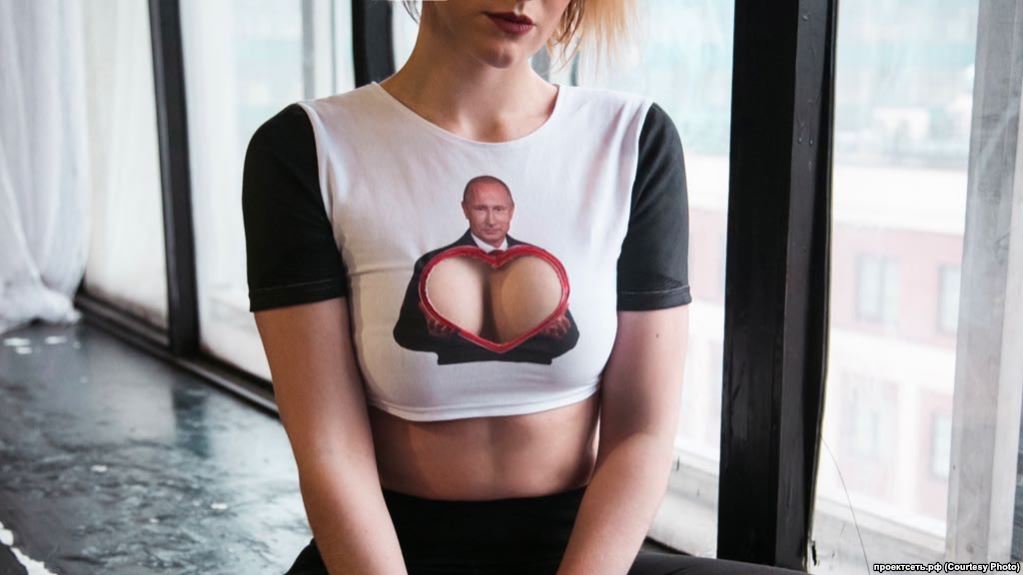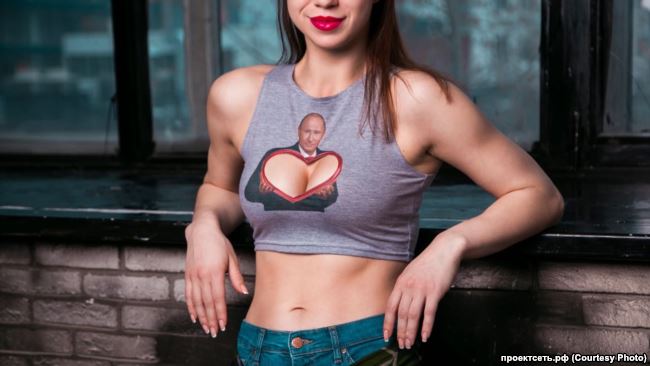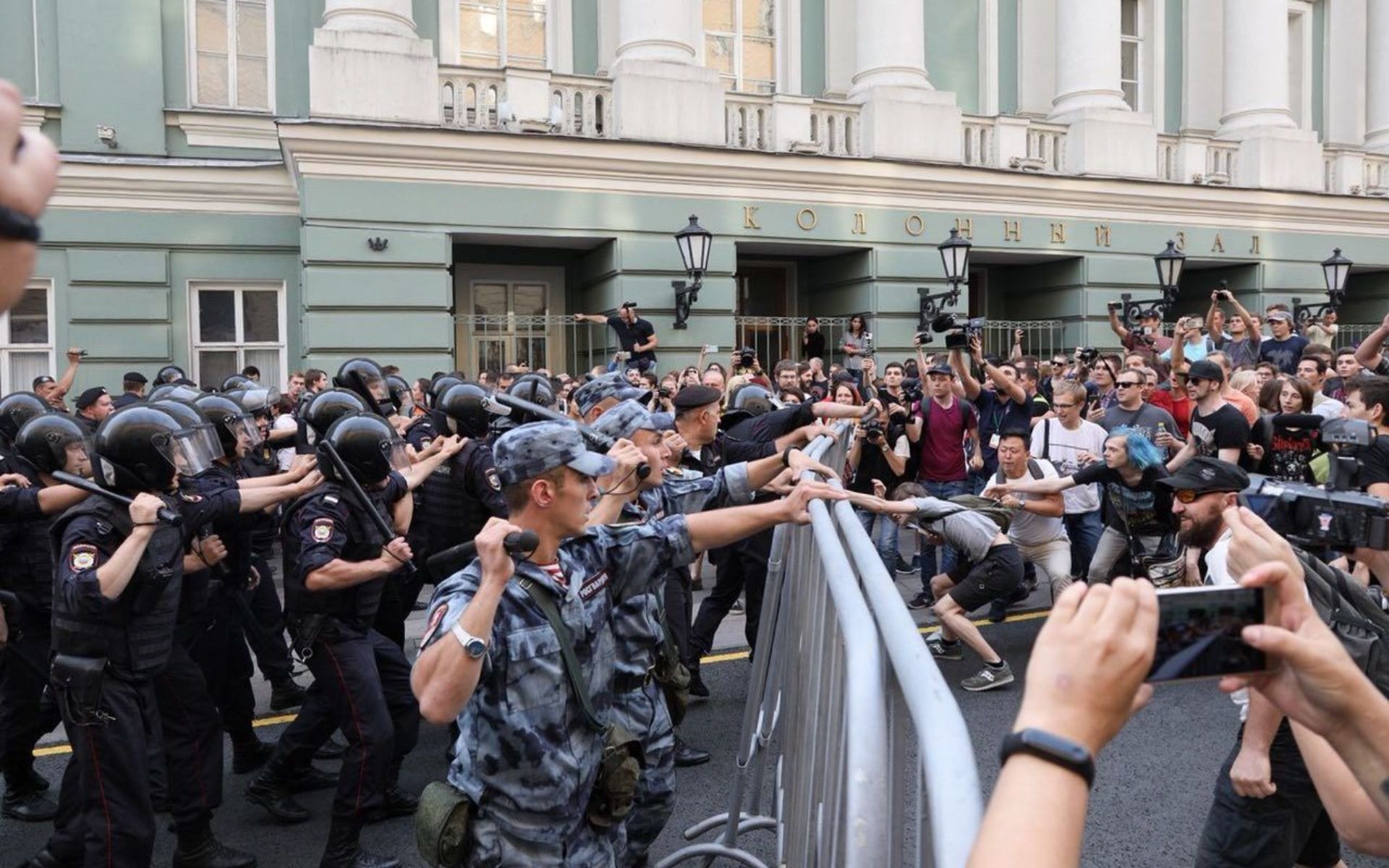The flood of news stories from a country as large, diverse and strange as the Russian Federation often appears to be is far too large for anyone to keep up with. But there needs to be a way to mark those which can’t be discussed in detail but which are too indicative of broader developments to ignore.
Consequently, Windows on Eurasia each week presents a selection of 13 of these other and typically neglected stories at the end of each week. This is the 80th such compilation, and it is again a double issue. Even then, it is only suggestive and far from complete, but perhaps one or more of these stories will prove of broader interest.
1. Putin Backers to ‘Bare Their Breasts’ for Kremlin Leader
In the wake of an animated short (see above) that has gone viral showing how Vladimir Putin has “raped Russia,” Putin backers have come with t-shirts featuring cutouts so that people can see the wearers’ breast with the Kremlin’s name and features prominently displayed just above them.
Given Moscow’s obvious belief that sex sells, one can only agree with writer Vladimir Voynovich’s conclusion that the Putin regime increasingly looks not just frightening but more than a little amusing.
2. Trump Would Still Like to Keep His Promises on Russia But Fears Impeachment if He Does, Analysts Say
Moscow commentators argue that Donald Trump would still like to keep his promises of a rapprochement with Russia but fears that if he takes any steps in that direction, he will face impeachment. A major reason the US president wants to, others say, is that he sees such cooperation as contributing to an increase in his wealth just as it has in the past.
However that may be, two developments this week are likely going to make it more difficult for people in Moscow to continue to argue in that way:
- On the one hand, an analysis of Trump’s tweets where he signals his most passionately held views shows that Russia is almost never mentioned.
- And on the other, Trump himself put out a statement that one of his signal accomplishments during the first 100 days of his administration was to isolate Russia at the UN.
3. Russia’s Economy Rises to Level of Stagnation
The best independent Russian analysts can say about the Russian economy is that it has now risen to the level of stagnation where they see it remaining for some time to come. Other economic news from there provides confirmation of that:
- Russian gas prices are rising and now more than in the US
- Russians now recognize that however hard they work, most of them will be poor at the end
- More than a quarter of the Russian unemployed have been out of work for more than a year
- There are massive wage arrears in the construction industry in Moscow now
- 70 percent of Russia’s middle class has had to cut its spending since 2014
- Retail trade continues to fall throughout the country.
4. Orthodox Fundamentalists Oppose Bolshoi Opera about Nureyev Because He was Gay

A group of Russian Orthodox nationalists say Moscow should block a ballet about Rudolf Nureyev at the Bolshoi Theater because of his sexual orientation, the latest salvo in the country’s culture wars. Other social developments this past week include:
- The health ministry wants to put guidance on vodka bottle concerning how much anyone should drink each day
- The government has restricted the sale of alcohol for the coming May holidays
- Ever more people are dying from impure water supplies in Russia
- More than half of the food products in Russian stores don’t meet sanitary standards
- A new study shows that people who feel they need pull to get ahead but don’t have any opportunities are likely to turn to violence
- One in every nine Russian teachers of Russian and math are unqualified
- Moscow has retreated again on English: the Moscow metro will now use English for its 1905 station’s name.
5. Russians Increasingly Engage in Protests Because They Lack Other Ways to Make Demands – and because Sometimes Such Actions Work
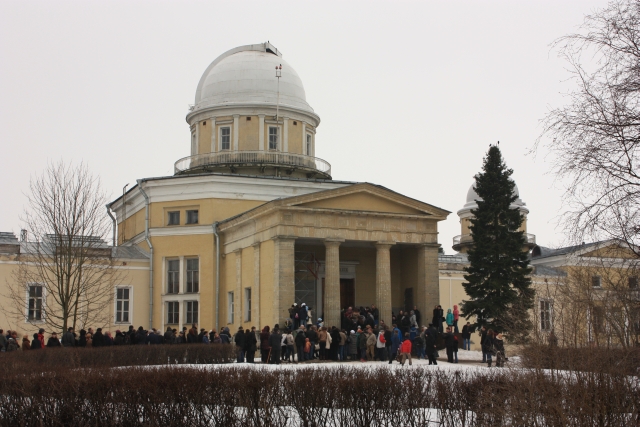
Russians across the country are protesting ever more often about ever more issues because they rarely can count on their representatives in the legislature to represent them and because sometimes the authorities in fact back down and do what the people want. This week alone:
- In addition to the long-haul truckers, scientists at the Pulkovo observatory protested to save their facility
- People in Novosibirsk protested higher communal service charges
- People asked why their country needs to spend so much on the military
- Samara pensioners protested cutbacks in their incomes
- Anti-nuclear activists protested in Moscow on the Chernobyl anniversary
- Teachers picketed the education ministry
- Students demonstrated to save their university in St. Petersburg.
Ждем вас 29.04 pic.twitter.com/r3EYSkOP9w
— ЧТД (@Chtede) April 25, 2017
A creative tweet by the Open Russia opposition group calling on Russians to join their April 29 nationwide protests to stop Putin from entering 2018 presidential elections. The sign on the tape says “Fed up!”
Sometimes the authorities backed down: anger on social networks prompted Yamal deputies to drop plans to restrict alcohol sales, and the Moscow mayor has been backpedaling in the face of anger about plans to pull down the khrushchoby.
Most of the time, however, the Russian authorities have responded in their traditional way, with repression. They banned Open Russia just before rallies planned this weekend, and they have now punished more than a thousand Muscovites who took part in the March 26 demonstrations March 26.
6. Back and Forth on the Nationalities Chess Board
There was both a plethora of bad news but some good news from the non-Russian portions of the Russian Federation:
- Personal debt is especially high in the North Caucasus
- Russians are posing as members of national minorities to take advantage of fishing rights belonging only to peoples of the North
- Polygamy is spreading in Chechnya
- Officials are searching for who leaked the information about the starving strikers there
- The Nogay are demanding a border change with Chechnya
- Nomadic groups may now adopt children
- All Komi schools this fall will have Komi language classes
- Officials have announced an end to subsidies for victims of political repression in Daghestan
- Sakha, because of budget cutbacks, has reduced to almost nothing school construction.
7. Despite Putin’s Stinging Criticism, Duma Resumes Passing Some Marginal Laws
Vladimir Putin sharply criticized the Russian legislature this week for passing laws without given them careful consideration, but despite that, the Duma continued to grind out some strange and marginal legislation, although most of it was in a repressive direction:
- It took up a bill to ban former state employees from working for foreign firms
- It voted to allow military personnel to accept gifts (bribes)
- In an exception to the norm, it began drafting the first ever legislation defining cross-border regional cooperation with Russia’s neighbors.
But new laws may matter less than some think: One official pointed out that laws governing public meetings don’t apply if the government is the organizer.
8. Monument Wars Continue Unabated
The fight over St. Isaac’s has escalated with media asserting that Putin agreed to hand the monument back to the Russian Orthodox Church and the Kremlin denying that he had. Other actions on this front over the last week include:
- A Russian nationalist says that St. Petersburg’s decision to take down the Alexander Kolchak monument proves that the Russian Federation isn’t Russia but rather a remnant of the USSR
- Officials announced that they will drape Lenin’s mausoleum to hide it during the May holidays
- There was a demonstration against the Yeltsin Center
- Russia’s careless approach to historical monuments of the peoples of the North Caucasus was documented
- A Soviet-era military museum in Kaluga was transformed into an entertainment center
- The Ingush government urges legislature to withdraw its law banning any memorializing of Stalin.
Three historical monument issues also came up:
- Moscow is still afraid to publish a complete set of the Nuremberg documents, fearing what they say about Soviet behavior
- A memoirist reports that Boris Yeltsin wanted to bury Lenin and demolish the mausoleum in 1998 but was blocked by others
- On the 10th anniversary of the removal of the Bronze Soldier by the Estonian government from the center of Tallinn, a Moscow commentator said that was the moment at which Russians finally recognized that the West would never be Russia’s friend.
9. Russia Faces Serious Domestic Security Problems
Not only are the number of terrorist crimes in Russia up by 45 percent over the last year including the discovery of underground arms factories, but Russians are willing and able to break into gun clubs, seize weapons and use them against police and others (spektr.press, kavpolit.com and kp.ru).
In response, Moscow has ordered the Russian Guards to crack down on gun clubs where most registered privately owned guns in Russia are kept. That may not work: three-quarters of all guns in private hands are not registered as the law requires and the Russian Guard, like portions of the Russian armed forces more generally, has become notoriously corrupt, something gun clubs will certainly exploit.
Another domestic security problem surfaced this week: fires in “closed” military cities. Because of their bureaucratic subordination to Moscow, they can’t get any help from local officials and so the fires often burn out of control before fire fighters can be sent in from the center.
10. Could Russia Capture a Real Rather than a Toy Reichstag?
So much attention has been given to Defense Minister Sergey Shoygu’s setting up of a model Reichstag for young Russians to storm, that some commentators are casting doubt on Moscow’s ability to seize a real one.
Some reports suggest that Russia is now capable of doing that:
- Its planes have been intercepted by NATO defenders nearly twice as many times so far this year as in all of 2015
- Russian military spending has risen 70 billion US dollars over last year.
But beneath those headline-grabbing developments and Russian bombast, the situation is anything but good:
- The defense ministry has cut funding for new rockets
- Moscow has announced that it has no money for new aircraft carriers and that in the same week that China put itself on course to have more aircraft carriers (two) than Russia does (one) and declared that Russia is lagging far behind in stealth technology
- Moreover, as a result of an accident in the Black Sea, Russia lost one of its few and expensive to replace electronic signal intelligence ships
- Russia shuttered its major arms factory in the Urals
- Defense officials said that because of cutbacks, Russia will rely on repairing rather than replacing existing weapons systems.
There is one sector where Russia does maintain its lead, although it isn’t one that Moscow normally crows about. Danish intelligence has warned NATO troops based in Europe that Russia is likely to use “honey traps” to spy on and disorder them.
11. If Navalny is Hitler, Does that Make Putin Hindenburg?
Even though the Kremlin has established a special office to discredit Aleksey Navalny before the presidential elections, one Moscow blogger says, its propaganda is extraordinarily clumsy and often raises exactly the kind of questions the regime certainly would prefer no one to ask. He gives as an example the Kremlin’s ill-fated promotion of the idea that the opposition leader is an updated version of Hitler. But if that is true, Anton Thunder says, then it means that “Putin is the aging Hindenburg” who will ultimately transfer power to his opponent.
12. French Magistrates to Investigate How Moscow Landed 2018 World Cup
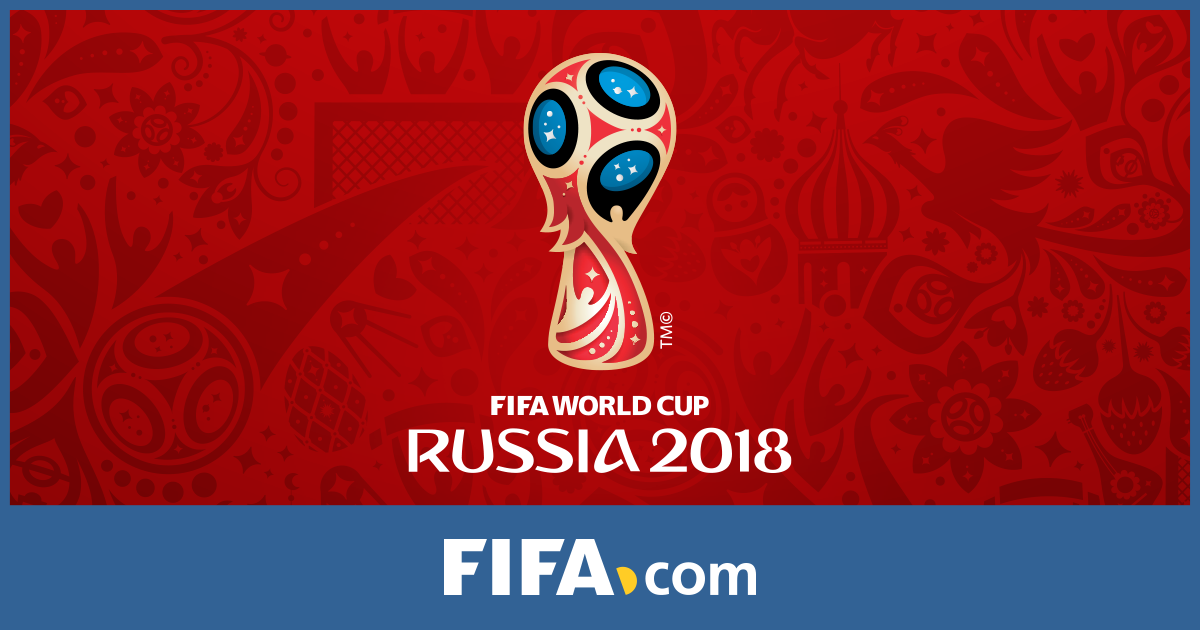
Given widespread reports about massive corruption in Russian sports, French magistrates say they will investigate Moscow used corrupt practices to gain the right to host the 2018 World Cup.
Meanwhile, the German newspaper Bild announced that it would not send its journalists to cover the competition if it is held in Russia because of Moscow’s censorship.
In Russia itself, three additional problems were announced this past week:
- First, many of the venues are still far from ready (znak.com and versia.ru).
- Second, officials conceded that there is no money to clean up the slums around the planned venues and so they will drape the dilapidated buildings to hide them from visitors.
- And third, a Moscow sports analyst says that Russian football is in the worst shape ever and that its players are unlikely to do well in any international competition.
In another sports-related story, Mongolia has said it will be happy to allow athletes from Buryatia to participate under Mongolian auspices in competitions where the Russian Federation has been banned.
13. Russians Now Dream at Most of Living like in Bulgaria not in Portugal
Vladimir Putin once promised that under his rule, Russia would surpass Portugal and Russians would live as well as do the residents of that country. But at present, Pavel Pryanikov says, Russians in the provinces at least live only as the level of the better-off African countries and only hope that they will see a rise in their standard of living to the level of that in Bulgaria or Mexico.
14. Moscow Using Interpol to Arrest Political Opponents, Council of Europe Says
Even though Vladimir Putin is quite prepared to ignore international rules and institutions when it suits his purposes, he is ready to exploit them when the reverse is true. Thus, according to the Council of Europe, Moscow is now using Interpol as do some other authoritarian regimes to go after and arrest its political opponents.
15. Putin Regime Stalwart Gets Taste of His Own Medicine – and Doesn’t Like It
Leonid Markelov, longtime head of Mari El who recently lost his job and has landed in a Russian prison because of corruption charges, says that others may deserve to be subjected to the conditions of these penal institutions but that he as a senior official should not be.
16. Moscow Cuts Rural Russia Off from the Internet
Citing the need to save money at a time of budgetary stringency, the Russian postal service has closed all public Internet access points in Russian villages, thus cutting off most of the residents of the rural parts of the country from access to the world wide web.
17. Russians Advised Not to Speak Russian When Visiting Many Countries
A commentator has suggested that Russians who still are able to travel abroad should avoid using their native language in many places because of local hostility to it.
18. Russia Ranks 149th in Press Freedom
According to a new international survey, Russia ranks slightly below Uganda in terms of press freedom, far below many of its neighbors and the West. Not only is there significant state control over and repression of journalistic activity, but Russian media outlets in some cases don’t want to hear the truth themselves: Thus, Russia’s state news agency dropped its contract with Reuters after the international news service carried stories on corruption Moscow didn’t like.
19. Moscow Continues to Repress Environmental Activists
Despite proclaiming 2017 as the year of the environment, Moscow has continued to move against independent ecological groups which continue to expose violations of Russia’s environmental laws by both business and government there.
20. Moscow Neglects Chernobyl Anniversary
On this, the 31st anniversary of the nuclear accident at Chernobyl, the Russian government and its outlets largely ignored the event, even though it had received extensive coverage last year on the round 30th anniversary and even though both Ukrainians and Belarusians not only wrote about this year’s event but organized demonstrations and protests about the continuing consequences of the 1986 disaster (rosbalt.ru, belsat.eu, and qha.com.ua).
21. Finland Releases Memorial Coin Showing Soviets Executing Finns
In honor of the centenary of Finland’s independence, Helsinki has released a memorial coin showing Finns being shot by a Soviet firing squad, an action that will infuriate many Russians.
22. Another Stalinist Term Makes a Comeback – ‘Rootless Cosmopolitan’
Russian officials and Russian commentators frequently reach back to the Stalinist period for ideas and terminology. Now, some who opposing giving back to religious groups churches seized from them in Soviet times are employing one of the most loaded and notorious Stalinist terms for their opponents, “rootless cosmopolitans.”
23. Urals Residents Ask Whether They’ll Have to Pay for Tearing Down Moscow’s Khrushchoby
Plans to tear down the five-story apartment buildings in Moscow are having an echo far beyond the ring road, with Russians as far away as the Urals asking whether they are going to be the ones to have to pay for that given that Moscow city doesn’t have enough money to do the job on its own.
24. One Russian Lawyer in Four Will Defend Anyone if the Price is Right
A new survey finds that Russian lawyers are quite prepared to defend obvious criminals if the latter have enough money to pay their fees.
25. Inspectors Can’t Do Their Job after Their Cars Fall into a Very Large Pothole
A group of officials who were asked to investigate the state of roads in a Urals village set out to do their job but never got there because their vehicles all fell into overly large potholes and were put out of commission. They shouldn’t be surprised: Prime Minister Dmitry Medvedev said this week that 40 percent of the country’s secondary roads don’t meet normal standards.
26. Russians Only Display Happiness to Those They Know, Study Says
The reason many foreigners think Russians are glum is that, as a new psychological study has found, Russians are inclined to display their happiness when they are among people they know. As a result, Russians are quite often happier than they appear.
And 12 more from countries in Russia’s neighborhood:
1. Belarusian Analysts Say Russia Can’t Afford to Occupy Their Country if Its Army Fights
Several Minsk analysts have concluded that Moscow lacks the resources to occupy Belarus if the Belarusian army resists them in a serious way.
2. Demographer Says Only 24.5 Million People Remain in Kyiv-Controlled Portions of Ukraine
A Russian specialist on populations says that as a result of outmigration and Russian seizures of Crimea and portions of the Donbas, the area of Ukraine under the control of Kyiv has only 24.5 million residents.
3. Armenian-Georgian Transportation Corridor a Threat to Russia, Moscow Paper Says
A Moscow paper says that an agreement between Yerevan and Tbilisi to open a transportation corridor between the two countries will be exploited by Iran to provide it with another route to Europe and that this will represent a threat to Russian interests in the Caucasus.
Meanwhile, warming relations between Georgia and its neighbors have raised the question as to whether Tbilisi might be willing to establish special Armenian and Azerbaijani “zones” on Georgian territory.
4. Vilnius Conducts Military Exercise on Resisting ‘Little Green Men’
The Lithuanian government is running a military exercise designed to prepare its forces to resist a Russian incursion of the kind Moscow used against Ukraine.
5. Only One Bishkek School Graduate in Five Speaks Kyrgyz
Despite efforts to promote Kyrgyz in the government apparatus and talk of shifting from a Cyrillic to a Latin script alphabet, education officials in Kyrgyzstan say that only 20 percent of those finishing school in the country’s capital speaks Kyrgyz.
6. Turkmenistan Said to Turn Down 99 Percent of All Visa Applicants
One of the signs that Turkmenistan is among the most closed countries in the world is a report that 99 percent of all entry visa applications are now rejected and that Ashgabat still requires, as did the Soviet Union, exit visas as well.
7. Reservations in Russian-Occupied Crimea Down 50 Percent from a Year Ago
Despite Moscow’s promotion of its newly annexed region and subsidies for flights there, tourism officials say that reservations for hotels on the Ukrainian peninsula re down by 50 percent from a year earlier, when they were already much lower than before Putin’s Anschluss.
8. By Definition, There Can’t Be Any Tortures in Russian-Occupied Crimea, Poklonskaya Says
Natalya Poklonskaya, a former Crimean official who now is in the Russian State Duma, says there is no reason for anti-torture investigators to visit the peninsula because there can’t be any tortures there by definition.
9. Armenia to Get Its Own Masonic Lodge
The leaders of the Paris-based Grand Oriente masonic order have visited Yerevan in order to set up a branch there.
10. Belarusians Prefer Ads in Belarusian to Those in Russian
Market experts in Minsk say that their surveys show that Belarusians are more likely to buy goods advertised in Belarusian rather than those advertised in Russian, an indication of a shift in language loyalty that really matters.
11. Nazarbayev Says Kazakhs Won’t Forget Russian Even When They have Latin Script
In remarks that have angered both Russian speakers and Kazakh speakers, Kazakhstan President Nursultan Nazarbayev says that even when Kazakhstan makes the transition from the Soviet-imposed Cyrillic alphabet to the Latin script, they will continue to read Russian just as much as now.
12. Media Freedom in Russian-Occupied Crimea Now at North Korean Levels
Local journalists say that the level of media freedom in Russian-occupied Crimea is roughly the same as that in North Korea. In short, there isn’t any.
Related:
- ‘Kremlin’s greatest worry: will the siloviki shoot at the people?’ and other neglected Russian stories
- ‘Trump has betrayed Russia to escape impeachment’ and other neglected Russian stories
- “Syrian strikes transform Trump from ‘ours’ to ‘another Hillary’” and other neglected Russian stories
- Putin is ‘a criminal but not Stalin’ and other neglected Russian stories
- ‘Putin is the Bin Laden of today’ and other neglected Russian stories
- “Even large Russian cities are beginning to die” and other neglected Russian stories
- “Putin is War; Putin is Death” and other neglected Russian stories
- “Kremlin views Trump as ‘stupid, un-strategic, and manipulable,’” and other neglected Russian stories
- ‘Moscow can’t find builder for new military base on Ukrainian border’ and other neglected Russian stories
- ‘Russian spies interfered with Nobel Committee to prevent Poroshenko Peace Prize’ and other neglected Russian stories
- Why did Putin say Russia’s prostitutes were ‘best in the world’ and other neglected Russian stories
- Russians calling Washington ‘Nashington’ and other neglected Russian stories
- Like Crimea, ‘Trump is Ours,’ Russian products proclaim and other neglected Russian stories




